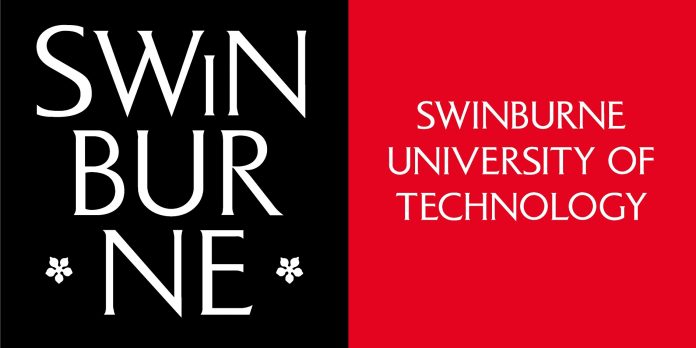 PHEW! Reflecting back, what a year it has been. It was definitely not the year we visualised back in school years or when we were younger. When Vision 2020 was envisioned by the then Prime Minister of Malaysia Tun Dr Mahathir Mohamad, I’m sure we all had the image of scenes from a sci-fi movie with flying cars.
PHEW! Reflecting back, what a year it has been. It was definitely not the year we visualised back in school years or when we were younger. When Vision 2020 was envisioned by the then Prime Minister of Malaysia Tun Dr Mahathir Mohamad, I’m sure we all had the image of scenes from a sci-fi movie with flying cars.
But instead, we were hit by unprecedented challenges and faced with ongoing uncertainties. We were tested by a pandemic which caused a worldwide lockdown and many industries were badly affected. The higher education industry, although not as severely affected as the airline industry, has since been limited by closed cross-country borders and physical distancing requirements where students were forced to leave the campus or their host country.
Through the new normal, as no face-to-face interactions were allowed, we found ourselves being agile and unlearning as well as relearning communication. The most obvious step was definitely to go digital. Although not something entirely new to us, going fully digital and virtual has been quite a challenge due to the absence of physical contact.
For higher education, three areas faced with challenges that required them to be conducted remotely are learning and teaching, assessment, and accreditation. Traditionally, the accreditation process was always conducted in a physical setting involving various stakeholders to assess and assure the quality of courses offered.
Quality assurance personnel were forced to address the most obvious question – going digital, how do we assure quality in the shift? Around the world, activities might stop but time does not. Students must graduate, courses must be accredited, and qualifications must be recognised. As the old English saying goes, “The show must go on”, quality assurance personnel were pushed to innovate alternative ways to conduct accreditation audits while complying with various pandemic guidelines outlined by regulators.
Many scholars posited that accreditation is about an activity conducted to determine the excellence and effectiveness of a particular curriculum. During this challenging time, the focus has been on being reflective rather than the intended outcome. Being reflective means to ensure that the best practices are often taken and reviewed for continuous quality improvement from time to time.
As a self–accrediting university, a status granted by the Malaysian Qualifications Agency (MQA) to universities with a confirmed robust internal quality assurance system, Swinburne Sarawak, even during the pandemic, has ensured that all courses are accredited based on the Malaysian Qualifications Framework (MQF) and relevant standards, as well as policies of MQA, and the Ministry of Higher Education (MoHE).
Through its Policy, Planning, and Quality unit, Swinburne Sarawak constantly innovates to continuously improve accreditation audit effectiveness and efficiency. In 2020, despite the pandemic, three courses successfully went through accreditation audits via the hybrid audit method – with interview sessions of the selected stakeholder groups conducted virtually. The hybrid accreditation audits comprising physical or face-to-face sessions were conducted in full compliance with Standard Operating Procedures (SOPs) issued by the State Disaster Management Committee (SDMC) and the National Security Council (MKN).
The hybrid accreditation audits conducted follow the same process and procedures undertaken by the traditional accreditation audit. The same number of external panel of assessors joined the virtual session via Microsoft Teams to ensure that the right experts were included to assess the courses. Not only that, the same internal and external stakeholders were also involved in the virtual session to maintain and sustain the quality of the courses offered.
Although done virtually or remotely, the depth of the reports, impact, and further improvement of quality were maintained as they would have been traditionally. The reports and supporting documentations were deposited in cloud storage to ensure comprehensive reviews could be done by the panel of assessors.
In addition, at the beginning of the pandemic, for professionally accredited courses, professional bodies were quick to respond by publishing guidelines, and proposing alternative assessments and guidelines to supplement certain academic activities or requirements such as internship and laboratory work to ensure that learning outcomes and objectives could still be achieved.
As an Australian branch campus operating in Malaysia, Swinburne Sarawak also complies with the Tertiary Education Quality and Standards Agency (TEQSA) standards as well as the Australian Qualifications Framework (AQF). This is to ensure that quality is met at the global level.
Lastly, the mediating factors of education quality are the satisfaction of students, teachers, parents, administrators, the authorities or regulators, the management team, and alumni. Without a doubt, Swinburne Sarawak is maintaining the required quality standards by adopting best practices to include all stakeholders and ensure their feedback are considered for further improvements.
To conclude, despite all the changes and alternatives adopted during the pandemic, it can be said that the number one priority is to assure that the intended learning outcomes and quality are never compromised.
Jefferson Sim Poh Thong is an executive with the Policy, Planning and Quality Unit at Swinburne University of Technology Sarawak Campus.
The post Global pandemic: What about quality? appeared first on Borneo Post Online.


